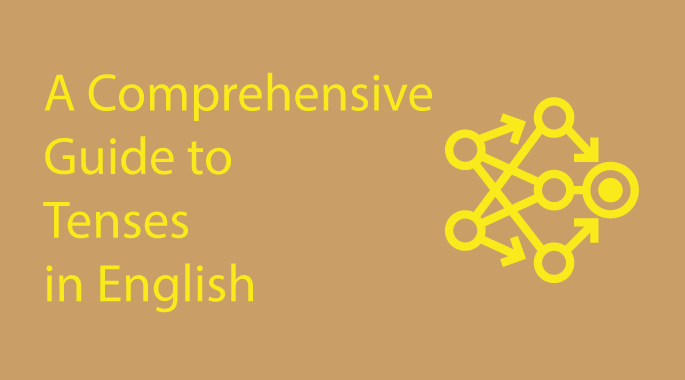English, like many languages, has a rich and intricate system of verb tenses. These tenses allow us to convey when an action occurred, whether it is ongoing, completed, or future, and much more. In this article, we will explore the various tenses in English, providing you with a comprehensive understanding of how they work.

Table of Contents
Tenses in English: Present Tenses
Present Simple
The present simple tense is used to describe habits, facts, and general truths. It is also employed in situations where actions are scheduled or regular. For instance, “I work from 9 to 5 every day.”
Present Continuous
This tense is used to describe actions that are ongoing at the moment of speaking. For example, “I am writing an article right now.”
Present Perfect
The present perfect tense is used to indicate actions that happened at an unspecified time in the past, or actions that have relevance to the present. “I have visited London several times.”
Tenses in English: Past Tenses
Past Simple
The past simple tense is used to describe actions that are completed in the past. “She traveled to Paris last summer.”
Past Continuous
This tense is used for actions that were ongoing in the past or for describing interrupted actions. “I was reading a book when the phone rang.”
Past Perfect
The past perfect tense is used to express actions that occurred before another action in the past. “By the time I arrived, they had already left.”
Tenses in English: Future Tenses
Future Simple
The future simple tense is used to express actions that will occur in the future. “I will call you tomorrow.”
Future Continuous
This tense is used for actions that will be ongoing in the future. “At this time next week, I will be on vacation.”
Future Perfect
The future perfect tense is used to describe actions that will be completed before a specific point in the future. “By the end of the year, I will have graduated.”
Tenses in English: Progressive and Perfect Tenses
Present Progressive
The present progressive tense is used to describe actions that are ongoing right now. “They are playing soccer.”
Past Progressive
This tense is used to describe actions that were ongoing in the past. “She was singing beautifully last night.”
Future Progressive
The future progressive tense is used to describe actions that will be ongoing at a specific point in the future. “I will be studying at this time next month.”
Present Perfect Progressive
This tense describes actions that started in the past and are ongoing into the present. “I have been working here for five years.”
Past Perfect Progressive
The past perfect progressive tense describes actions that were ongoing before another action in the past. “I was tired because I had been running for an hour.”
Future Perfect Progressive
This tense describes actions that will be ongoing before a specific point in the future. “By the time you arrive, I will have been waiting for an hour.”
Tenses in English: Conclusion
In English, there are a total of 12 tenses. These tenses allow us to convey a wide range of information about actions and events. Mastering these tenses is crucial for effective communication.
In conclusion, understanding the various tenses in English is essential for effective communication. While it may seem complex, with practice, you can become proficient in using them to convey your thoughts and ideas accurately.
Tenses in English: FAQs
- How do I choose the right tense to use? Choosing the right tense depends on the context and the timing of the action. Consider when the action occurred and its relationship to other actions in the sentence.
- Are there any irregular verbs that don’t follow the usual tense patterns? Yes, there are irregular verbs that have unique conjugations in different tenses. For example, “go” becomes “went” in the past tense, not “goed.”
- Can I switch tenses within a single sentence? While it’s generally best to stick to one tense for clarity, there are situations where tense changes are appropriate, especially in complex sentences.
- How do I practice using tenses correctly in English? Reading and writing in English are great ways to practice using different tenses. Pay attention to how native speakers use them in various contexts.
- Is it possible to be fluent in English without mastering all these tenses? Yes, it’s possible to be fluent in English without knowing all the tenses perfectly. However, a good understanding of tenses can significantly improve your language skills and overall communication.